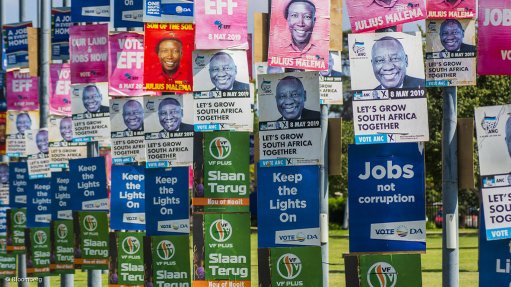
Photo by: Bloomberg
Despite measures to ensure 50% representation for women in decision-making roles, research by the Commission for Gender Equality (CGE) has pointed to poor leader representation in politics, with evidence of gender insensitivity and a lack of gender transformation within political parties, as well as inadequate internal policies and programmes to promote and support women.
Speaking during a women’s dialogue hosted by the Independent Electoral Commission in Johannesburg, on Wednesday, CGE deputy director for policy and research Naledi Selebano explained that for the first time since 2011, the 2021 local government elections saw some reversal of the gains made in women's representation at a local government level.
The representation of women in politics in 2011 stood at 38%, 41% in 2016 and 37% in 2021.
Selebano noted that women’s representation and participation in political parties and processes required examination, and she highlighted that there was a persistence and prevalence of a masculine model in political life and elected government bodies.
She noted that there was also lack of party support, such as limited financial support for women candidates, limited access to political networks and a lack of access to well-developed education and training systems, in enhancing women’s leadership in general.
In terms of the number of women represented in political party structures, data shows that women are placed in critical and influential leadership positions such as secretary-general and Treasurer, but leadership positions are still dominated by men.
This means that there are a limited number of women in leadership and decision-making positions, despite the existence of constitutions that speak clearly to gender equality in party structures.
Selebano noted that this evidence showed a bias towards male leadership and women’s persistent exclusion from decision-making despite the purported commitment to inclusive leadership.
“This seems to suggest that delegates of the party deny women an opportunity to participate in party decision-making structures and leadership positions; and that the nomination process favours male political elites. Overall, it is clear that women continue to occupy lower positions compared to their male counterparts who tend to occupy higher positions and dominate decision-making processes as well as party lists,” she highlighted.
The CGE said it supported proactive measures such as legislated quotas to ensure women’s equal representation in politics and government.
WOMEN IN MEDIA
Non-governmental organisation Gender Links gender and governance associate Susan Tolmay pointed out that women, who made up 58% of voters, were the majority in the 2021 elections.
She said women’s political participation was one of the most problematic areas of reporting and that the views of these women were underrepresented and sometimes misrepresented in the media.
Tolmay added that the tension between women politicians and the media was also owing, to a certain extent, to the fact that women had not had the same level of exposure as men and were often reluctant or wary in their dealings with the media.